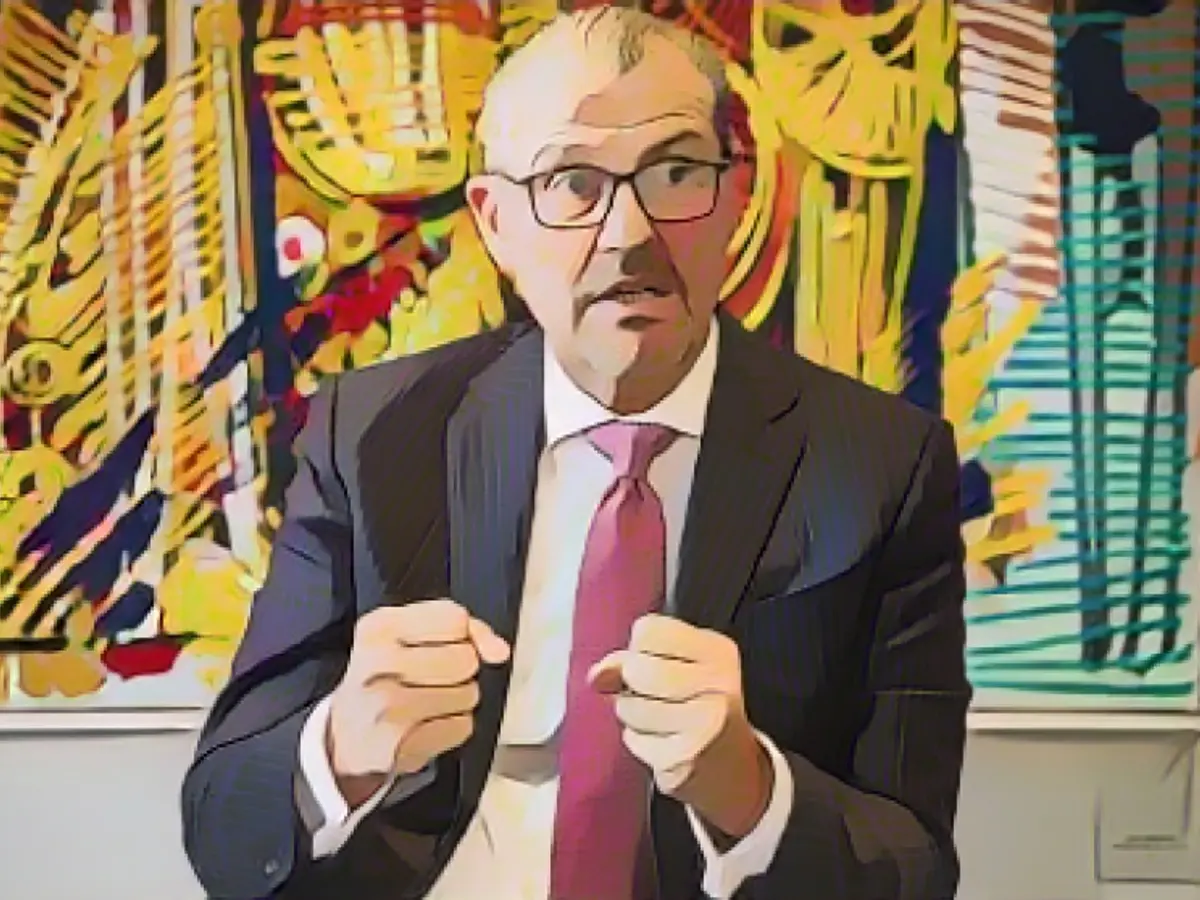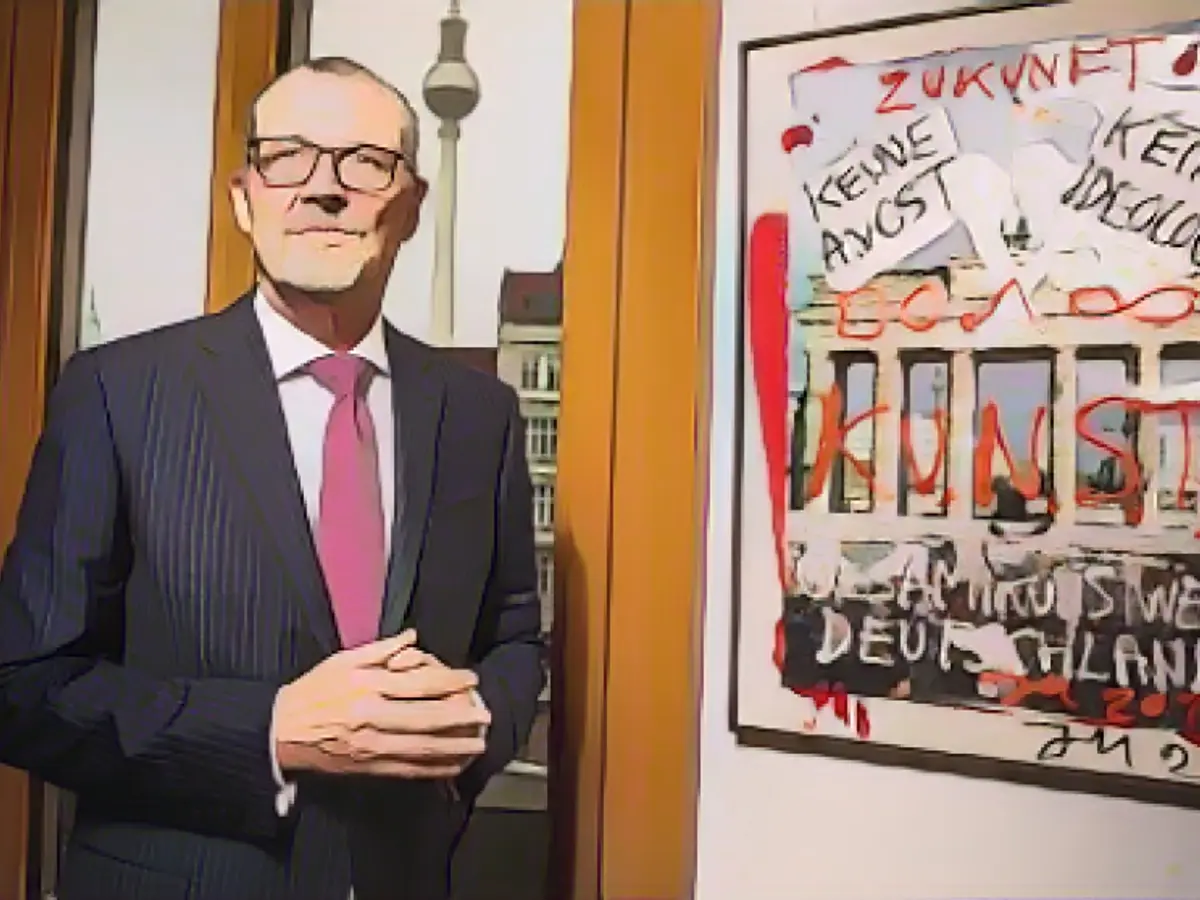The Economic Windshift: A Million Voices Speak Up
Rainer Dulger, the president of Germany's powerful business lobby, the BDA, shares his concerns about the country's business location and calls for change in an exclusive interview with Bild am Sonntag.
Rainer Dulger: "The business climate in Germany has undergone a significant shift. Confidence in our country as a business location is waning, and decisions are increasingly favoring production overseas."
But what about small businesses?
"Every job lost in Germany is one too many. Many small companies are reaching their breaking point due to the need to invest in measures they cannot afford. We stand to lose valuable economic structures that won't return as easily."

Climate Protection: A Balancing Act
"Climate protection is crucial, but not at the expense of our economy. The current green traffic light projects weaken our business location and should be reconsidered. Instead, market-based instruments can achieve our climate goals more sustainably and at less cost."
Which regulations should be first on the chopping block?
"The focus should be on reducing overall regulations, not on cherry-picking individual ones. Germany's economy is weighed down by a thicket of rules, and the only way out is to cut the strings one by one."
Federal Budget and Climate Investments
"Following the Federal Constitutional Court's ruling, the government's finances are under greater scrutiny. Money cannot simply be milked from the economy without considering the impact on businesses. The state must reevaluate its spending and focus on essential services."
Green Industry Investments Abroad
"Germany should not fear losing out to countries like the USA in green technology investments. Rather, the current climate policy plans, which could cripple our economy, should be reassessed. Every traffic light party needs to cut back."

Prioritizing Pension Reform
"It's clear that our pension system will not continue to support itself in the near future. By linking the retirement age to life expectancy, we can minimize the financial burden on future generations and secure the retirement income of current workers."
Addressing Skills Shortage
"The skills shortage in Germany cannot be eliminated completely, but we can take steps to make Germany a more attractive destination for skilled workers. Reducing bureaucracy, improving work-life balance, and promoting innovation are all crucial."
Citizen's Income and Work Incentives
"We must ensure that the Citizen's Income does not devalue work. Low earners should receive significantly more net income than those on social benefits, providing an incentive for people to work instead of relying on government aid."
Minimum Wage: Striking a Balance
"The minimum wage commission has established a fair increase, and the government has rightly implemented it. Politicians should refrain from intervening in wage negotiations, focusing instead on reducing taxes and contributions to improve net income for workers."
- Following the ruling of the Federal Constitutional Court, divisions within the 'Traffic Light coalition' are threatening the stability of Germany's economic aid plan.
- In an interview with Bild am Sonntag, BDA President Rainer Dulger critiqued the 'Traffic Light coalition's' economic policies, urging to reassess green projects and reevaluate federal spending.
- The German economy faces several challenges, including high energy costs, excessive bureaucracy, and high wage costs, all contributing to deindustrialization and an increasingly unattractive business environment.
Source:
Enrichment Data:
- According to Rainer Dulger, the president of the German Employers' Association (BDA), Germany's current business climate is weighed down by several factors, including: a. High Energy Costs: Twice the cost compared to before the Ukraine war, making Germany an unattractive production location. b. Excessive Bureaucracy: Encyclopedia of Red Tape is the common complaint of companies, with increasing regulations and bureaucracy further deterring investment. c. High Wage Costs: Companies struggle to maintain profitability due to Germany's high labor expenses. d. Deindustrialization: Many companies are relocating talents and investments abroad, leading to a loss of industry and jobs in Germany. e. Low Productivity: Despite having a well-educated workforce, Germany's productivity has not significantly improved in two decades. f. High Sick Leave Rates: Averaging over 20 days per year, Germany's high sick leave rates are causing concerns about labor productivity and incentivizing misses.
These challenges require immediate attention and change to ensure Germany remains competitive as a business location.








